Mammal
The day Rick Bryant got his masters degree in English (honours, first-class), he also attended his first rehearsal with Mammal. Though a bright academic career beckoned, the dark lure of rock and roll proved stronger.
In the early 70s, Mammal were an important New Zealand band: original, ambitious and talented. The paucity of their recordings means their significance has sometimes been overlooked. At a time when New Zealand’s musical landscape was dominated by pop acts and covers bands, Mammal were pioneers of an uncompromising experimental rock.
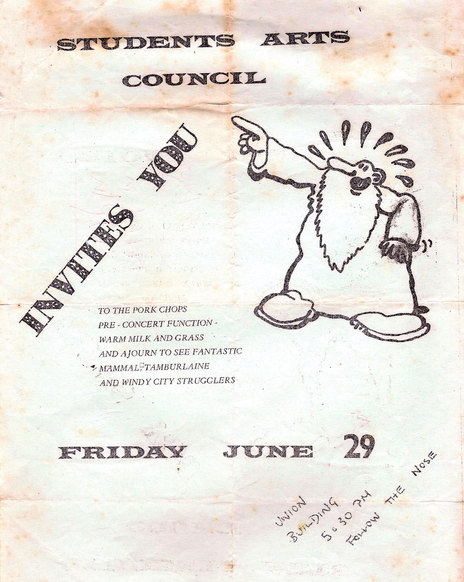
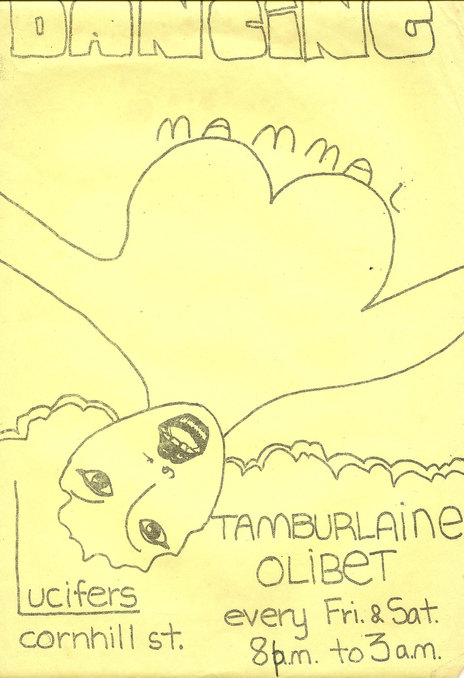
A poster for Mammal and Tamburlaine at Wellington club Lucifer's in 1972
Photo credit:
Rick Bryant Collection
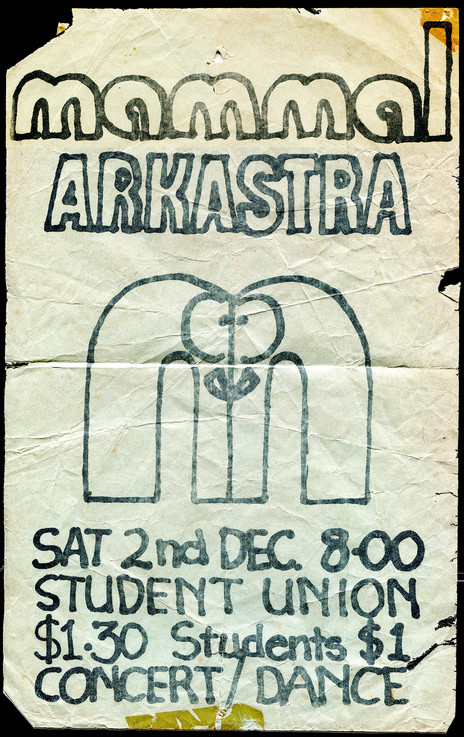
Mammal / Arkastra poster for a gig at Victoria University, Wellington, December 1972
Photo credit:
Peter Blake collection
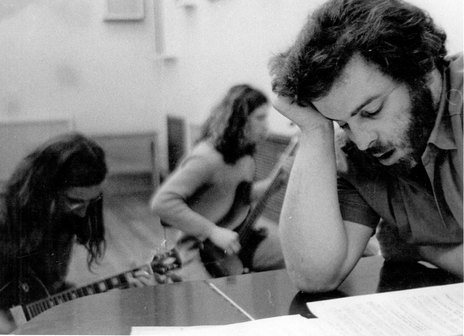
Mammal in the studio, 1973. Bill Lake, Patrick Bleakley, Rick Bryant
Photo credit:
Phil Warren Collection
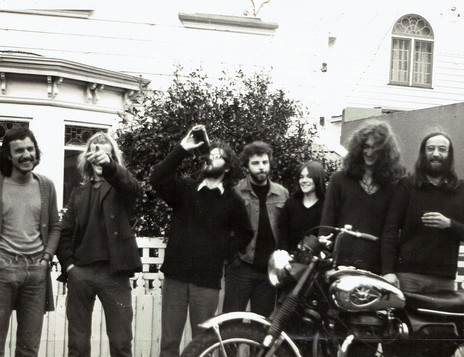
Mammal, 1971 or 72. Tony Backhouse pictured with beer.
Photo credit:
Rick Bryant Collection
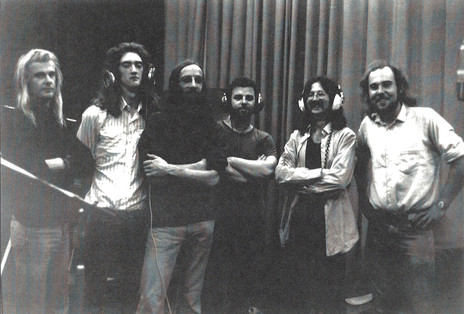
Mammal, 1973. From left: Mike Fullerton, Robert Taylor, Bill Lake, Rick Bryant, Tony Backhouse and Mark Hornibrook.
Photo credit:
Bill Lake collection
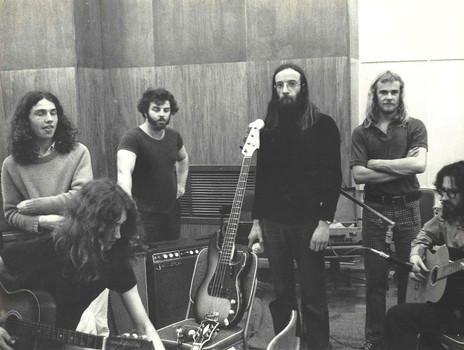
Mammal recording at NZBC's Broadcasting House, Wellington, 1972. From left: Patrick Bleakley, Robert Taylor, Rick Bryant, Bill Lake, Mike Fullerton and Tony Backhouse.
Photo credit:
Bill Lake collection
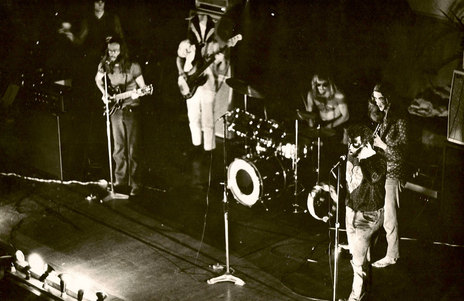
Mammal, Auckland Town Hall, 1973
Photo credit:
Rick Bryant Collection
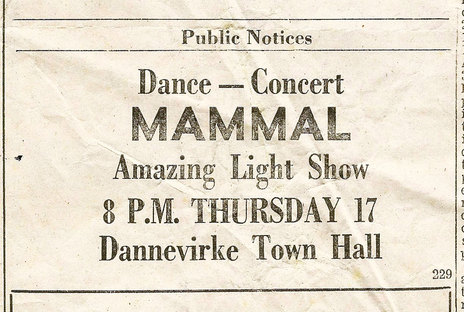
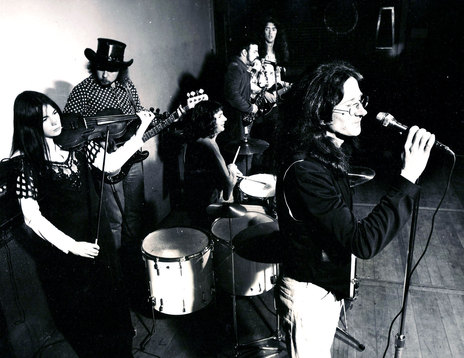
Mammal, 1974. Left to right: Julie Needham, Mark Hornibrook, Kerry Jacobson, Rick Bryant, Robert Taylor, Tony Backhouse
Photo credit:
Rick Bryant Collection
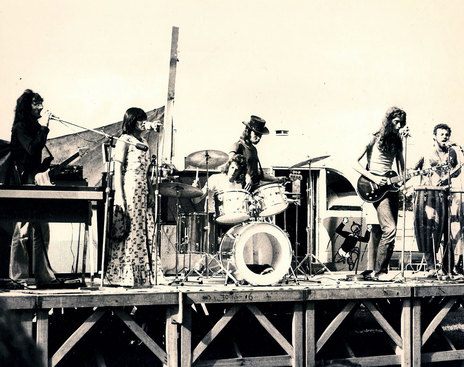
Mammal, 1973. Left to right: Tony Backhouse, Julie Needham, Kerry Jacobson, Mark Hornibrook, Robert Taylor, Rick Bryant
Photo credit:
Rick Bryant Collection
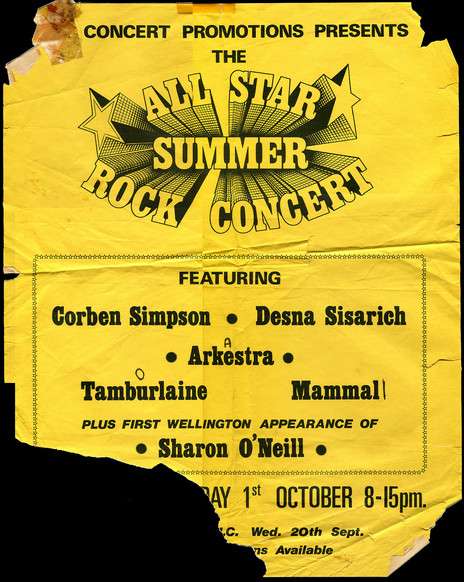
Arkastra in the All Star Summer Rock Concert at Wellington's Opera House, alongside Corben Simpson, Desna Sisarich, Mammal, Tamburlaine and Sharon O'Neill, 1 October 1972.
Photo credit:
Peter Blake collection
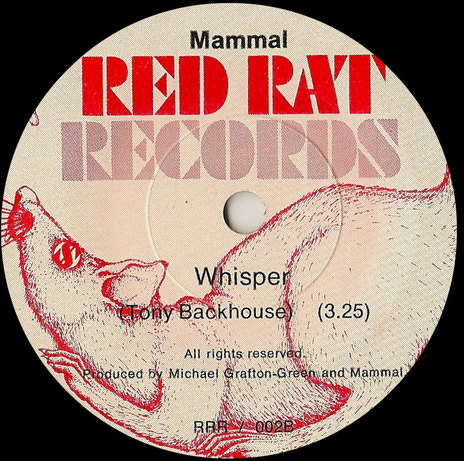
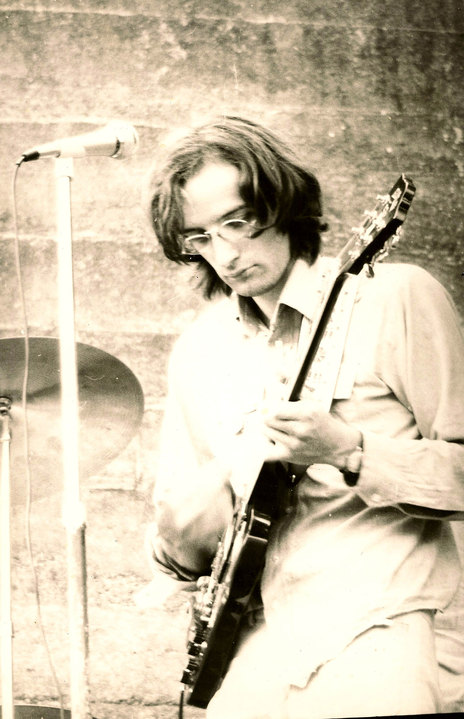
Bill Lake, 1975, Patanga Crescent, Wellington.
Photo credit:
Rick Bryant Collection
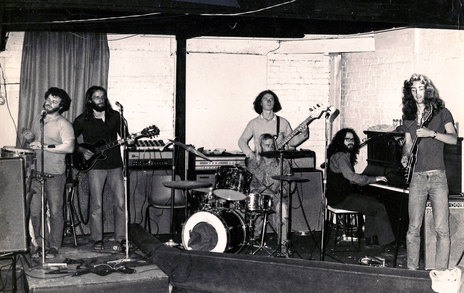
Mammal, 1972 (at Lucifer's Nightclub). Left to right: Rick Bryant, Bill Lake, Patrick Bleakley, Mike Fullerton, Tony Backhouse, Robert Taylor
Photo credit:
Rick Bryant Collection
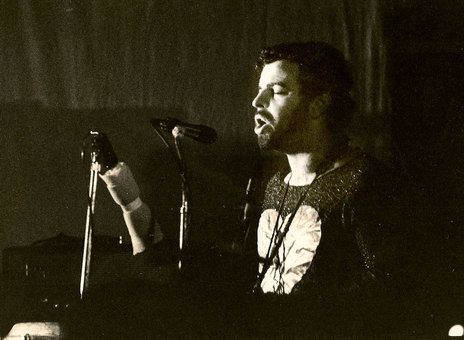
Rick Bryant, Mammal, 1973
Photo credit:
Rick Bryant Collection
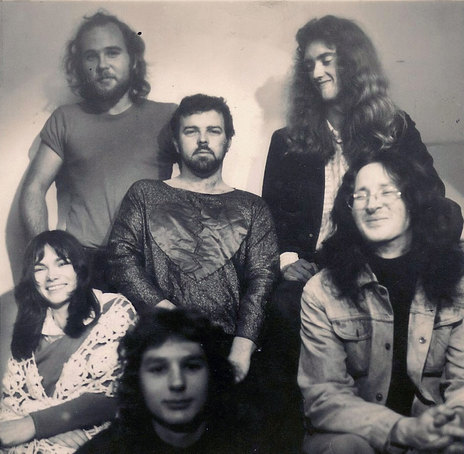
Mammal, 1974. Clockwise from left: Mark Hornibrook, Rick Bryant, Robert Taylor, Tony Backhouse, Kerry Jacobson, Julie Needham
Photo credit:
Rick Bryant Collection
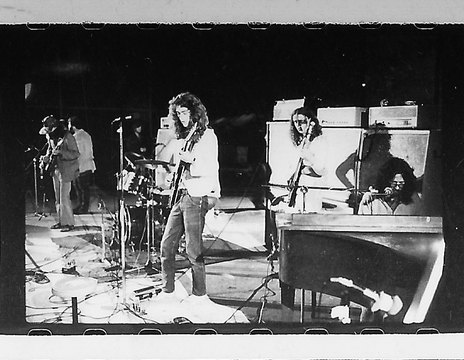
Mammal live at the 1973 Great Ngāruawāhia Music Festival, coming on just after Black Sabbath
Photo credit:
Rick Bryant Collection
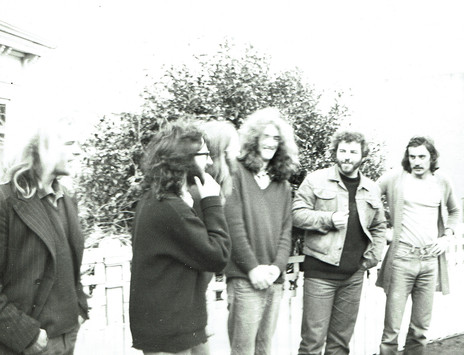
Mammal, c 1971. Tony Backhouse with hand on chin.
Photo credit:
Rick Bryant Collection
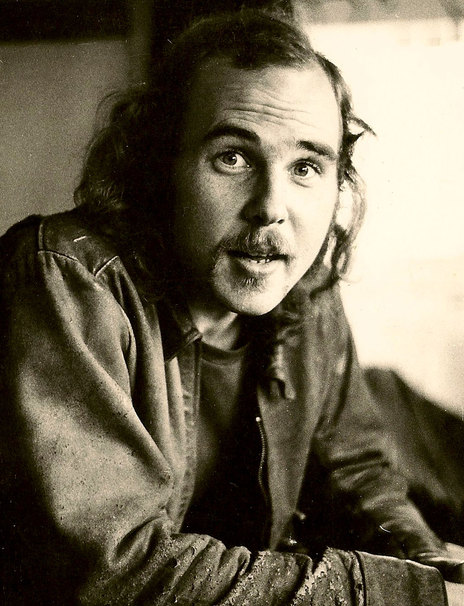
Mark Hornibrook, 1974
Photo credit:
Rick Bryant Collection
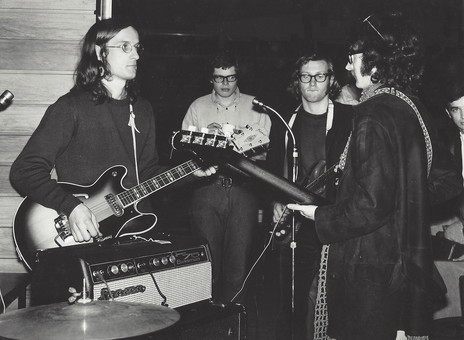
Mammal mark one, 1970. From left, Bill Lake, an audience member, Simon Morris, Tony Backhouse.
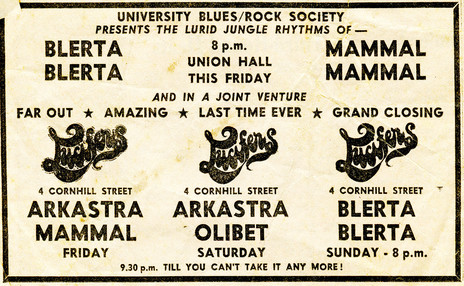
Arkastra, Blerta, Olibet, and Mammal perform at the closing gigs of Lucifer's, Wellington, February 1973, after a double-bill by Blerta and Mammal at the Union Hall, Victoria University (later known as the Hunter Lounge venue).
Photo credit:
Peter Blake collection
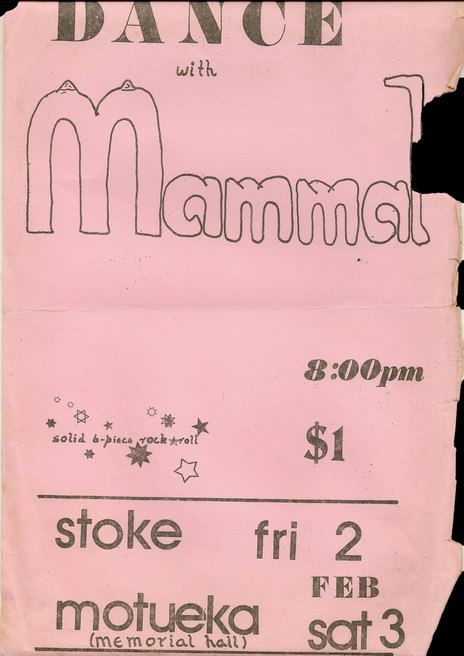
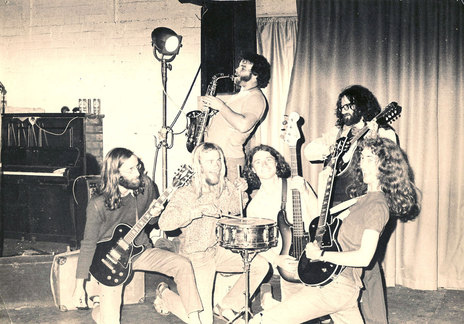
Mammal, 1972. Left to right: Bill Lake, Mike Fullerton, Rick Bryant, Patrick Bleakley, Tony Backhouse, Robert Taylor
Photo credit:
Rick Bryant Collection
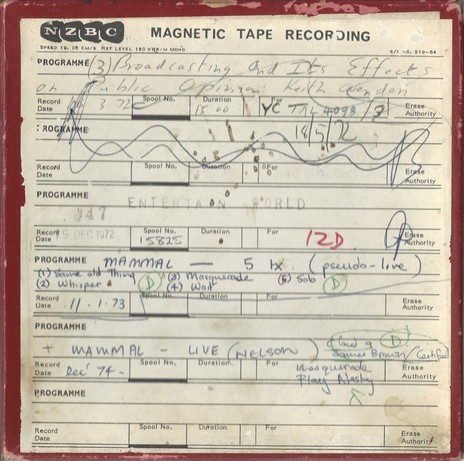
Tape box for live recording of Mammal in Nelson, December 1974, and five tracks recorded "pseudo live", 11 January 1973.
Photo credit:
Nick Bollinger collection
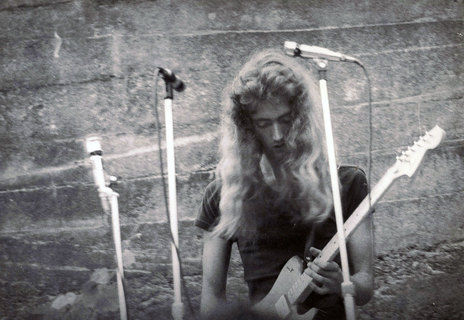
Robert Taylor, 1974
Photo credit:
Rick Bryant Collection
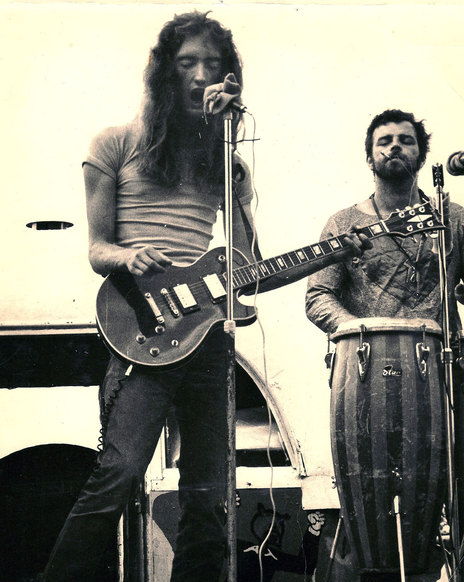
Mammal, 1973. Robert Taylor, Rick Bryant
Photo credit:
Rick Bryant Collection
Labels:
Red Rat Records
Members:
Rick Bryant - vocals, tambourine
Tony Backhouse - piano, guitar
Robert Taylor - guitar
Julie Needham - violin, vocals
Steve Hemmens - bass
Mike Fullerton - drums
Patrick Bleakley - bass
Mark Hornibrook - bass
Kerry Jacobson - drums